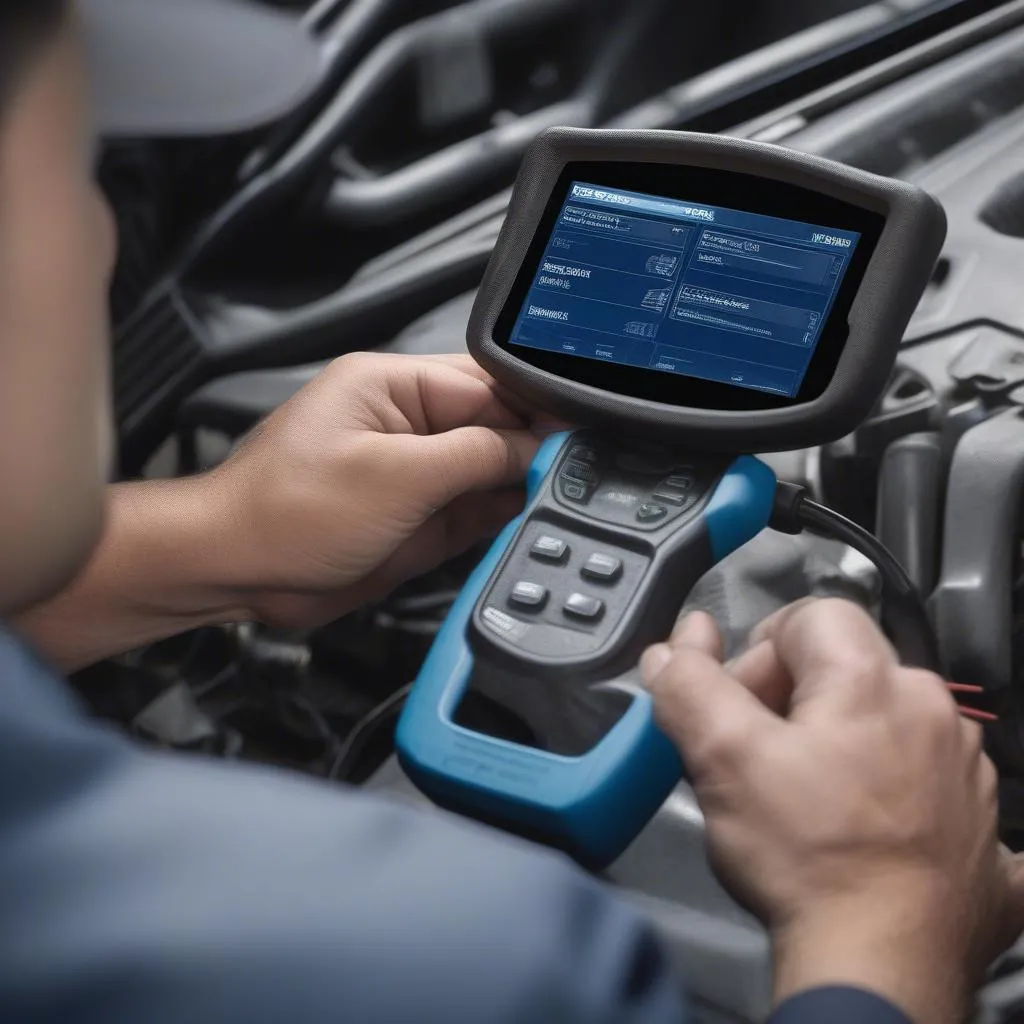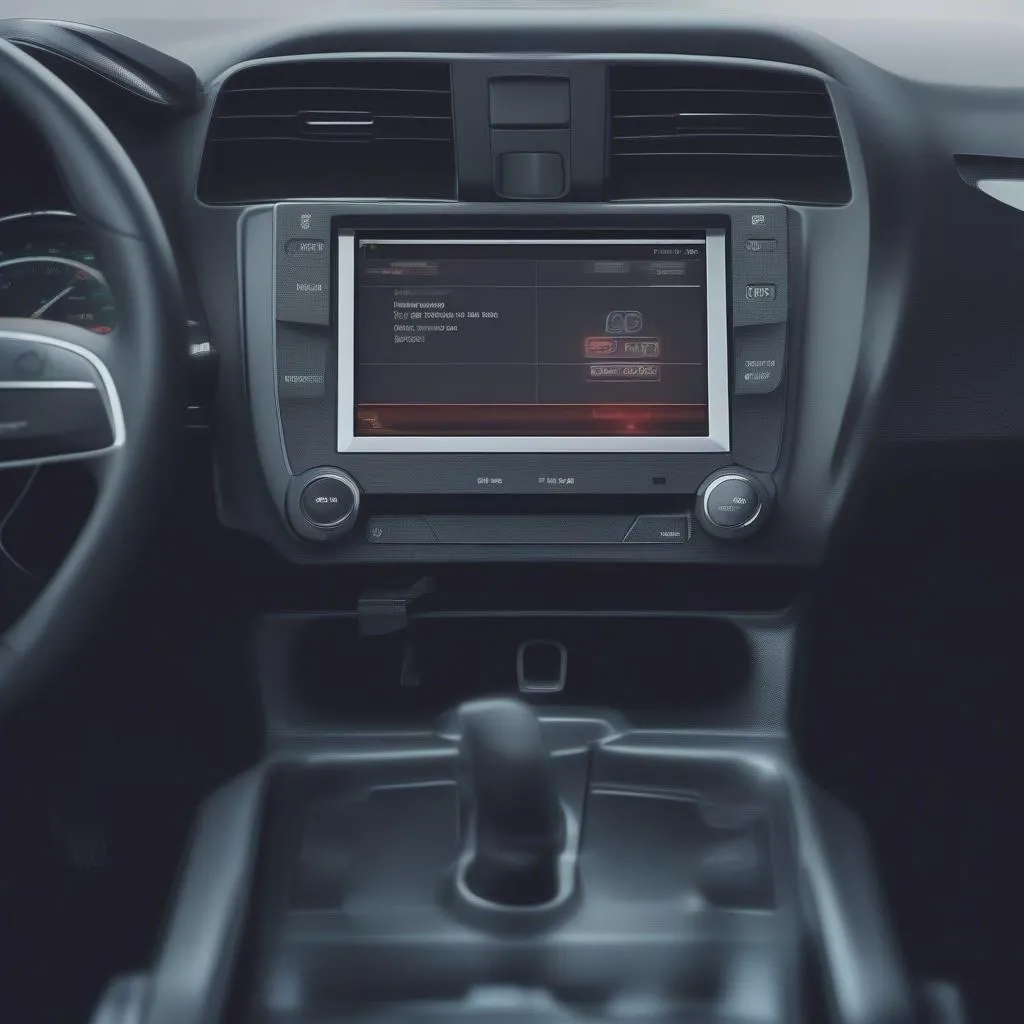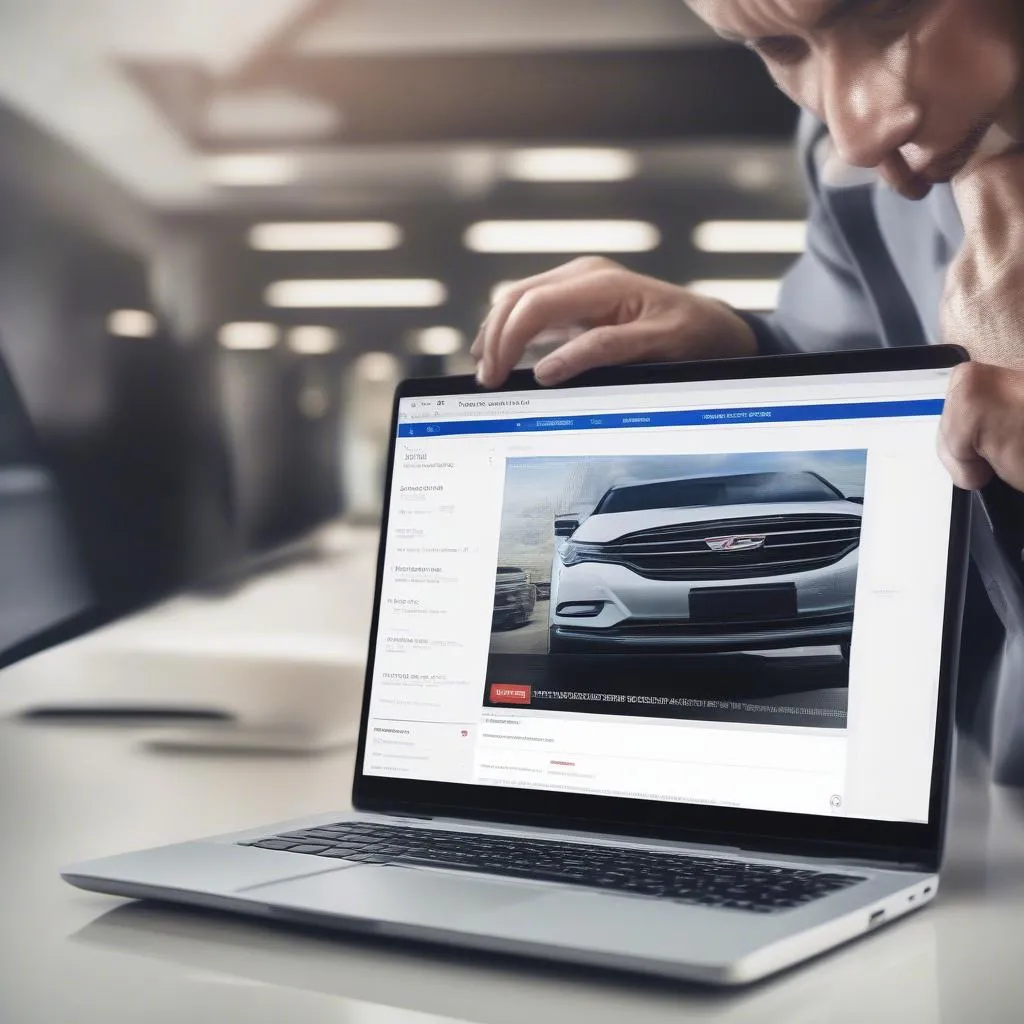Ever found yourself staring at your Jeep, wrench in hand, wondering, “Can I really bleed these ABS brakes myself?” You’re not alone. Many Jeep owners, especially those tackling DIY repairs, find themselves in this situation. Let’s dive into the world of Jeep ABS brakes, demystify the bleeding process, and see if we can get you back on the road with confidence.
Understanding the Question: Jeep ABS Bleeding – Why, What & How?
Before we get our hands dirty (figuratively, of course!), let’s understand the “why” behind bleeding your Jeep’s ABS brakes. Imagine driving down a scenic Colorado mountain road, and suddenly, your brake pedal feels spongy. That, my friend, is a tell-tale sign of air trapped in your brake lines, and it’s crucial to bleed the system to restore that firm pedal feel.
Why is bleeding ABS brakes important?
- Safety First: Air in the brake lines can lead to reduced braking performance, increasing your stopping distance and potentially causing an accident.
- Optimal Braking: Bleeding ensures your Jeep brakes at its best, giving you that confident and responsive braking you need.
- DIY Satisfaction: Successfully bleeding your Jeep’s brakes is a rewarding experience, saving you money and giving you a sense of accomplishment.
But what makes ABS different?
Anti-lock Braking System (ABS), as the name suggests, prevents your wheels from locking up during hard braking. Now, while this is a brilliant safety feature, it adds complexity to the bleeding process. Why? Because ABS systems involve additional components like an ABS module and pump, potentially trapping air in areas a traditional bleed might miss.
Can it be done without a scan tool?
Now, for the million-dollar question: can you bleed Jeep ABS brakes without a scan tool? The short answer is: it’s complicated.
While the traditional method might work for some Jeeps, particularly older models, it’s not always guaranteed to be fully effective with ABS.
Think of it like this: bleeding brakes without a scan tool on a modern Jeep with ABS is like trying to navigate the Rubicon Trail with a road map – you might get lucky and find your way, but there’s a high chance you’ll hit some roadblocks (or air pockets, in this case!).
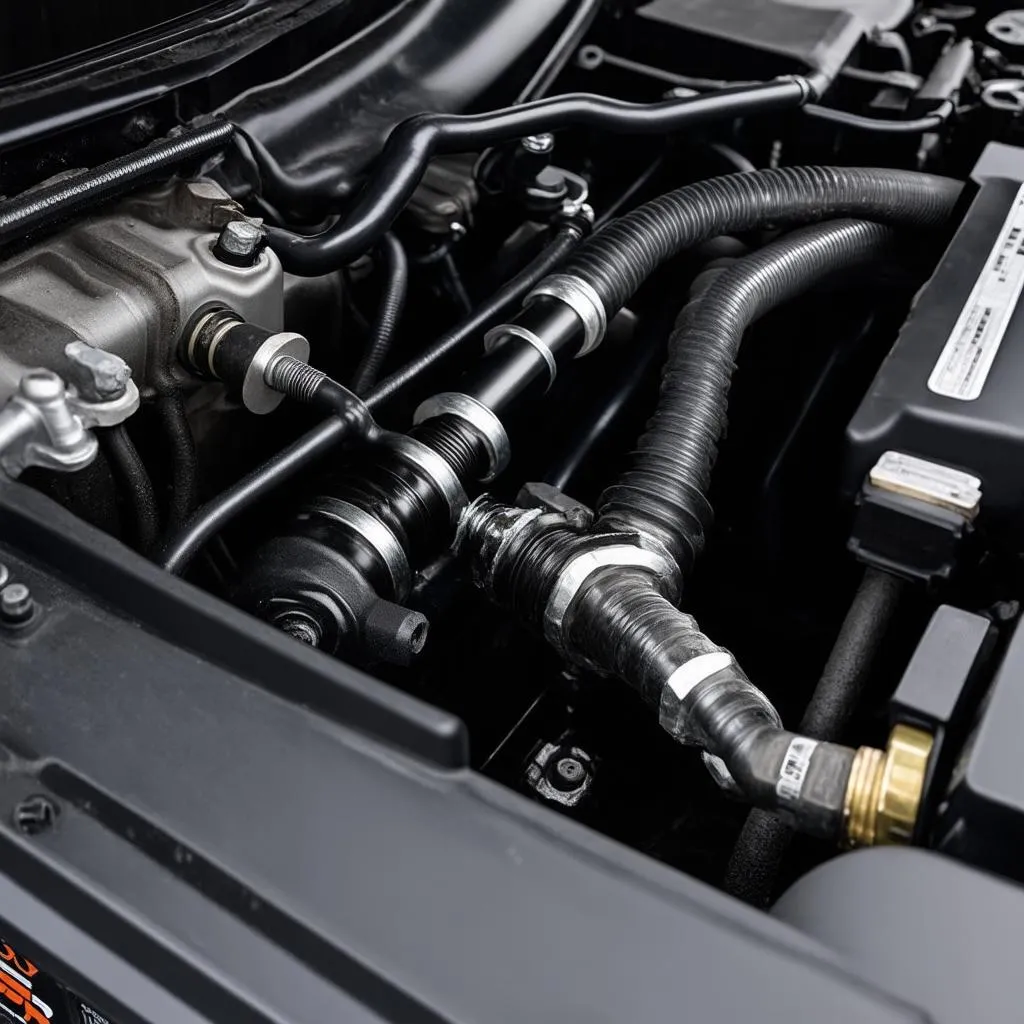 Jeep Wrangler brake lines
Jeep Wrangler brake lines
To Scan or Not to Scan? That is the Question!
Here’s the deal: while some swear by the old-school methods, using a scan tool designed for Jeep vehicles is highly recommended. Here’s why:
- Complete Air Removal: Scan tools can activate the ABS module and cycle the pump, purging any trapped air within the system.
- Precision Bleeding: Modern Jeep ABS systems often require specific bleed sequences, and scan tools guide you through the process step-by-step, minimizing the risk of errors.
- Efficiency: Save time and frustration by using a scan tool to streamline the bleeding process.
A word from an expert:
“Attempting to bleed modern ABS systems without the proper equipment can be a recipe for disaster. It’s like trying to fix a computer with a hammer! Investing in a good scan tool is investing in your safety and peace of mind.” – Mark Stevenson, Automotive Engineer and author of “The Complete Guide to Automotive Electronics”
Bleeding Your Jeep ABS Brakes: The Process
1. The Traditional Method: (For older Jeeps or as a preliminary step)
This method involves the classic approach of using gravity or a pressure bleeder to flush brake fluid through the system. However, remember, this might not be sufficient for complete air removal in ABS systems.
2. The Scan Tool Method: (Highly Recommended)
- Connect the scan tool to your Jeep’s OBD-II port.
- Select the ABS bleeding function on the scan tool.
- Follow the on-screen prompts, which will guide you through the specific bleed sequence for your Jeep model.
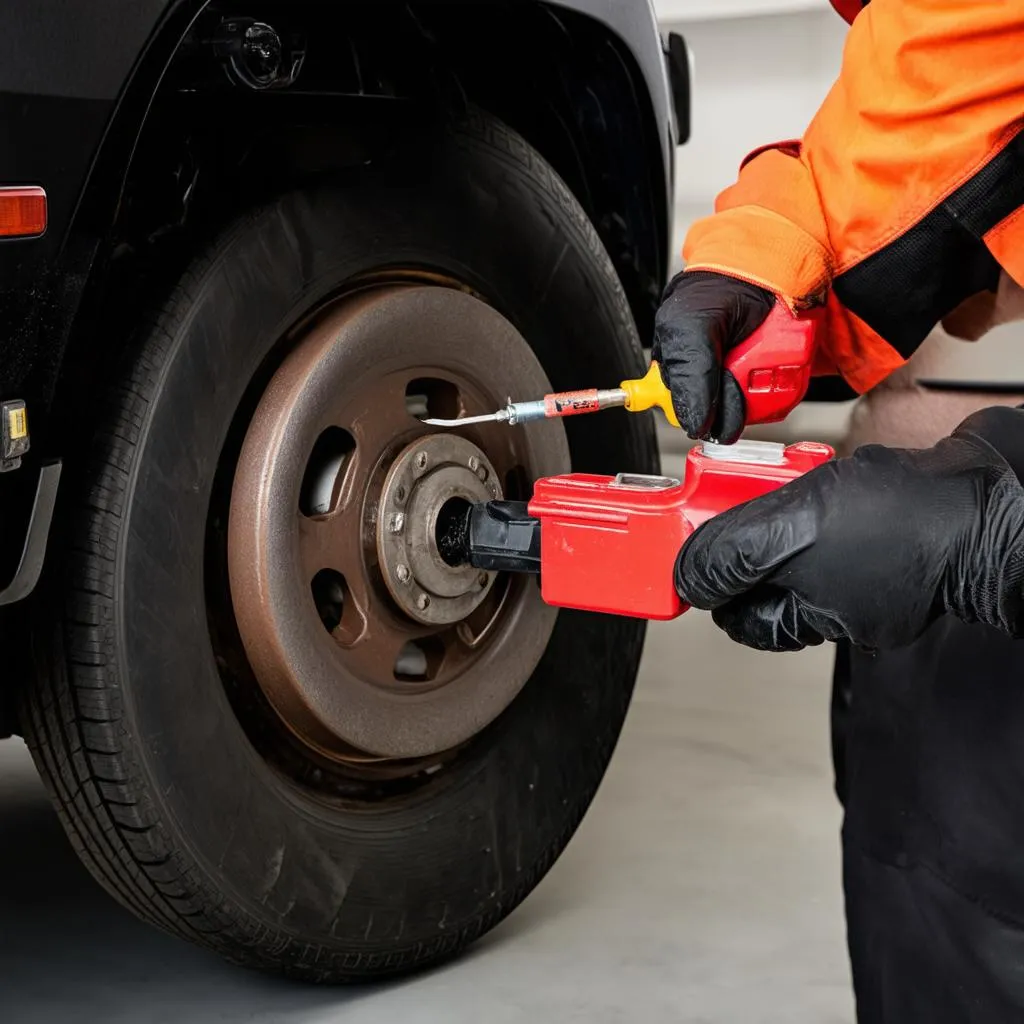 Mechanic bleeding brakes
Mechanic bleeding brakes
FAQs: Your Burning Questions Answered!
Q: Can I damage my ABS system by bleeding the brakes myself?
A: While possible, it’s unlikely if you follow the correct procedures and use the right tools. Always consult your Jeep’s service manual for specific instructions.
Q: What type of brake fluid does my Jeep need?
A: Refer to your owner’s manual or the brake fluid reservoir cap for the recommended brake fluid type and specifications.
Q: How often should I bleed my Jeep’s brakes?
A: It’s generally a good idea to bleed your brakes every two years or 30,000 miles as part of your regular maintenance. However, if you notice any sponginess or reduced braking performance, don’t hesitate to bleed them sooner.
Need More Help? We’re Here for You!
Bleeding your Jeep’s ABS brakes can be a daunting task, especially for first-timers. If you’re unsure about any step of the process or need assistance with Diagnostics Tool-related issues, don’t hesitate to reach out! Contact our team of automotive experts via WhatsApp at +84767531508. We’re available 24/7 to provide guidance and support.
Drive with Confidence!
Remember, maintaining your Jeep’s braking system is paramount to your safety and the safety of others on the road. Whether you choose to tackle the bleeding process yourself or seek professional help, ensure it’s done correctly.
